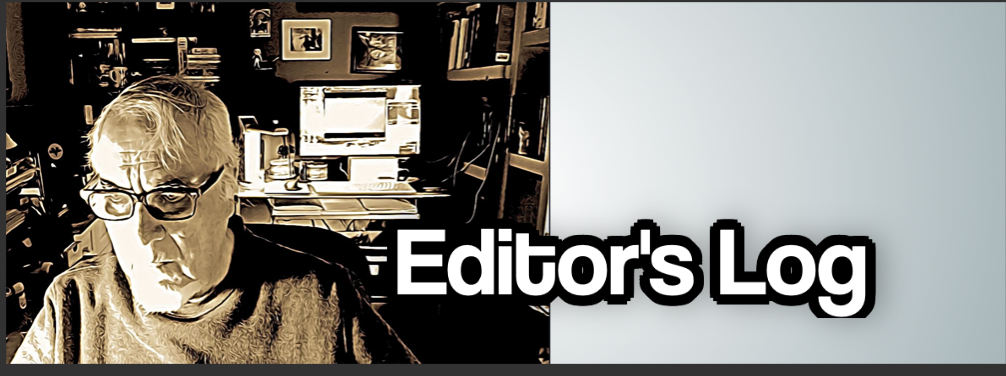The US empire is unraveling, but how did it happen?
 PATRICE GREANVILLE
PATRICE GREANVILLE

Foreigners and travelers and even professional historians have often attempted to explain the United States without great success, her contradictions and extremes usually frustrating the effort. Alexis de Tocqueville came close to an impressionistic but commendable account, while German economist and sociologist W. Sombart, visiting in the latter part of the 19th century, focused more on the young nation's class struggle. (Sombart, at the time still a man of the left —he would later drift toward Nazism—was so shocked by America's lack of a real mass labor party he wrote a book on the subject, Why is there No Socialism in the United States? (Warum gibt es in den Vereinigten Staaten keinen Sozialismus? 1906). (The English translations of this work did not appear until more than half a century later).
In any case, what crises you may ask? Since we can't expect the US media nor its educational system (both primarily preoccupied with maintaining the nation's myths), nor, for that matter, the status-quo invested political class to impart the much-needed clarity about the nation's affairs, it is reasonable to assume most Americans inhabit a bubble of nearly impregnable jingoistic ignorance preventing them from grasping the nature of the processes behind what is by any standard an unsolvable crisis. We say unsolvable because this crisis stems directly from capitalism's core dynamic, the basic problem inhering in the very dynamic of capitalism. If you solve it, you kill capitalism. Thus, while ancient slavery and feudalism also produced an inevitable system of grotesque inequality, only capitalism suffers not just from rapid wealth accumulation at the top, with all its infinitude of abuses, but also from periodic crises of what sounds a bit counterintuitive: overproduction. Now, capitalism has survived overproduction crises before (the Great Depression being perhaps the best known, cured only by the huge expenditures required by WW2), but now we speak of a terminal crisis because this time the still maturing digital revolution is expanding human productivity to such a degree that pretty soon probably three-quarters or more of humanity will be unemployed. Of course, the fast shrinkage of jobs due to automation is a situation that only applies under the rules of capitalism. Under socialism rising productivity is never a threat, but a liberating mechanism raising everyone's income along with a shrinking of work inputs, that is, as abundance for all expands, toil per capita recedes.
This realisation alone would create explosive tensions in any capitalist society. But, in the US, where socialistic palliatives are stingy, there's also the centuries-old legacy of racism and brutal internal colonialism. Granted, the ruling class has cynically used racism to divide the working class and delay the day of reckoning, but, in the end, racism only contributes to the social chaos and widespread misery drowning out the potential restorative powers of society. Needless to say, this is a polity with a lot of skeletons in the closet, but, to complicate matters further, this obvious ticking bomb has been abominably managed by a ruling class whose quality of leadership is simply nonexistent. When you have a plutocracy that is increasingly deaf to the need for even palliative adjustments to their predatory rule, the upshot is the decomposing social fabric, colossal confusion and pervasive anger and anomie we see today in the United States. Clearly, even absent an organizing vehicle, the ruling class' legitimacy is dropping. How long can this gangrenous organism subjected to such centrifugal forces last? How long can a clumsy and brutal imperialism grounded in a once strong homeland persist in the 21st century now that powerful and highly capable rivals (by its own designation) have finally arisen?
Apparently, the only and probably main thing holding the country together is American Exceptionalism, perhaps the central myth in a huge edifice of lies that extends with equanimity to both its internal and international "consciousness markets." In this regard it's providential, indeed, for the ruling 0.0001%, that technology allowed them to make use of a global disinformation machine capable of propping up their self-serving official narrative, a charlatan's dream, dispersing their innumerable falsehoods to every corner of the planet. Yet, despite this almighty assist, things are clearly unraveling. Yes, it took almost 300 years for the fraud to begin to fibrillate, but now, as things stand, it looks like the very divisions, clashes, and stupidity in the ranks of the ruling orders will only accelerate their downfall. That said, how did the once-promising American republic congeal into this infernal mess?
Well, without further eloquence, as Mr Dooley might say, here's M. Gui Rochat's take on the matter.—PG
By Gui Rochat


The views expressed herein are solely those of the author and may or may not reflect those of The Greanville Post. However, we do think they are important enough to be transmitted to a wider audience.
All image captions, pull quotes, appendices, etc. by the editors not the authors.
YOU ARE FREE TO REPRODUCE THIS ARTICLE PROVIDED YOU GIVE PROPER CREDIT TO THE GREANVILLE POST VIA A BACK LIVE LINK.
![]() This work is licensed under a Creative Commons Attribution-NonCommercial 4.0 International License
This work is licensed under a Creative Commons Attribution-NonCommercial 4.0 International License
[premium_newsticker id="211406"]
Don't forget to sign up for our FREE bulletin. Get The Greanville Post in your mailbox every few days.